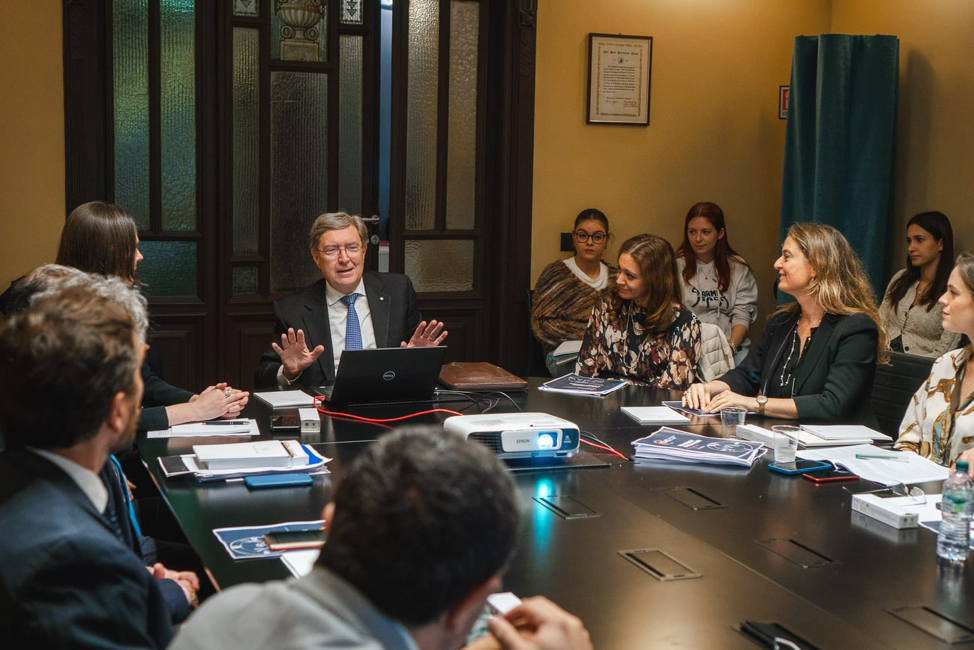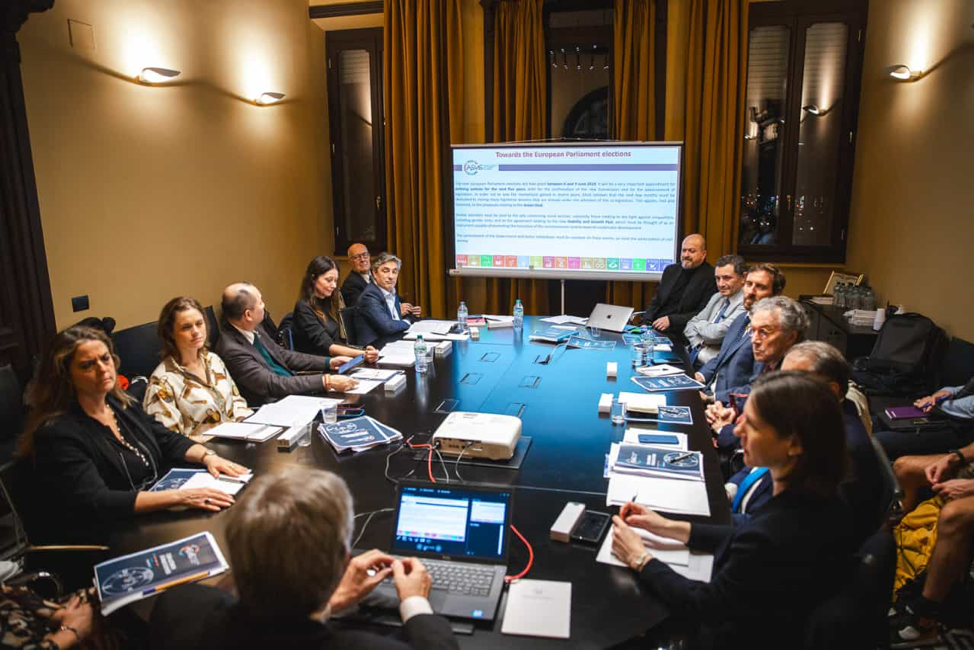On November 15, 2024, the Institute of Future and Innovation Studies at John Cabot University, Rome, hosted a roundtable, “Global Challenges and the UN 2030 Sustainability Goals: Navigating a World in Crisis,” moderated by Francesco Lapenta, its director. This event marked the beginning of a series leading to a meeting at Harvard University Loeb House, hosted by the Boston Global Forum on the 30th of April, 2024.
The session commenced with a compelling presentation by Prof. Enrico Giovannini, the former Italian Minister for Infrastructure and Transport, based on the #ASVIS UN Sustainability Goals Report. This presentation set the stage for a dynamic roundtable discussion with a diverse group of distinguished experts.
The conversation delved into the complex, interconnected challenges the world currently faces and their implications for achieving the UN 2030 Sustainable Development Goals. Against the backdrop of unprecedented geopolitical unrest, including the Russia-Ukraine war, the escalating conflict in Israel-Palestine with Hamas, and the lingering effects of the pandemic, we explored how these crises are reshaping global cooperation and stability.
A key focus area was the impact of these geopolitical tensions on economic, social, and technological progress, particularly in the green economic sector. Despite its potential to accelerate sustainable development, this sector is now grappling with numerous hurdles. We discussed the increasing risks associated with the gender and digital divide, privacy issues, labor and child labor, and AI development amid these growing global tensions.
Furthermore, the roundtable explored the social and economic ramifications of these crises, highlighting how financial strains are influencing resource allocation for sustainable development. With governments shifting focus to conflict resolution, critical questions emerged about the potential repercussions on efforts to combat poverty, ensure quality education, promote economic growth, and achieve gender equality.
In conclusion, the roundtable was a significant step towards understanding the multifaceted nature of the challenges at hand and exploring viable pathways to steer the world back towards achieving the vital objectives set by the UN 2030 Sustainable Development Goals.
Mr. Nguyen Anh Tuan, CEO of the Boston Global Forum, introduced the BGF and Active Inference Institute Initiative: “Principled AI for Societal Well-Being: Informed by Neuroscience and Natural Systems” – Advancing Human-Centered AI through Integration with Natural Systems and Neuroscience: Toward Policy and Societal Well-Being. It is an AI Framework for SDG.

